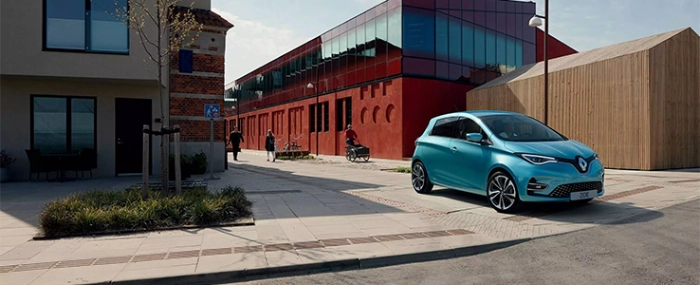
© Renault Group
Electronics Production |
Renault's major push to become a force amongst EV players
The Renault Group has announced its strategy for EV battery design and production in France. A major part of the strategy comes to life through the signing of two major partnerships as well as the development of a gigafactory by 2024.
The partnerships have been signed with Envision AESC – a provider of battery technology and smart, digitalised, low-carbon battery plants, and a long-standing partner of Nissan – and Verkor, a Grenoble-based start-up specialised in development of EV battery cells. The partnerships, along side the group's strategy aims to help the Renault Group become a more competitive and efficient EV player, a press release reads.
These two most recent partnerships go hand in hand with existing programmes within Renault Group, in particular the agreement with LG Chem which currently supplies battery modules for Renault's electric range and for the upcoming MéganE. In parallel, there are on-going discussions with ACC to potentially join the ecosystem as of 2027.
"Our battery strategy builds on Renault Group’s ten years of experience and investment in the electric mobility value chain. The latest strategic partnerships with Envision AESC and Verkor greatly bolster our position as we ensure the Europe-based production of one million electric vehicles by 2030. This marks a major milestone as we strengthen our competitive edge, by rooting our Group in the underlying momentum of French industry and striving to reach our carbon neutrality objectives. The Group thus reaffirms its willingness to produce popular, affordable, and cost-effective electric cars in France," says Luca de Meo, CEO of Renault Group in a press release
As part of its EV strategy, Renault Group is partnering with Envision AESC who will develop a gigafactory in Douai with a capacity of 9 GWh in 2024 - the goal is however to bring this up to 24 GWh by 2030. As the battery arm of Envision Group, it will invest up to EUR 2 billion to produce low-carbon batteries for electric models, including the future R5. Envision AESC is forecasting the creation of 2,500 new jobs by 2030 as a result of the partnership.
The proximity of the Envision AESC’s gigafactory to Renault ElectriCity production sites at Douai, Maubeuge and Ruitz, which will create 700 additional jobs in the Hauts-de-France region, means Renault Group can boost its competitiveness and improve the efficiency of its EV production chain.
"Investing to build a new gigafactory in northern France, we aim to support the net zero carbon transition by making high performance, longer range batteries and EVs affordable and accessible for millions more motorists. This first phase development will unlock future large-scale investment to grow the local supply chain and develop the whole life cycle opportunities of batteries, including energy storage, battery reuse, smart charging and closed loop recycling," says Lei Zhang, founder and Chief Executive Officer of Envision Group.
In addition to its partnership with Envision AESC, Renault Group has signed a Memorandum of Understanding to become shareholder of Verkor with a stake of over 20% in the company and plans to join the consortium that was created around the French start-up in 2020. Renault Group and Verkor intend to develop jointly a high-performance battery suitable for the C and higher segments of the Renault range, as well as for the Alpine models. Together with the consortium, they will help create of more than 200 direct jobs.
The initial phases of the partnership will involve the financing of a R&D centre (Verkor Innovation Centre) and a pilot line for battery cell and module prototyping and production in France as early as 2022. The second phase will see Verkor moving forward to create the first gigafactory for high performance batteries in France, with an initial capacity of 10 GWh for the Renault Group from 2026, potentially rising to 20 GWh by 2030.
